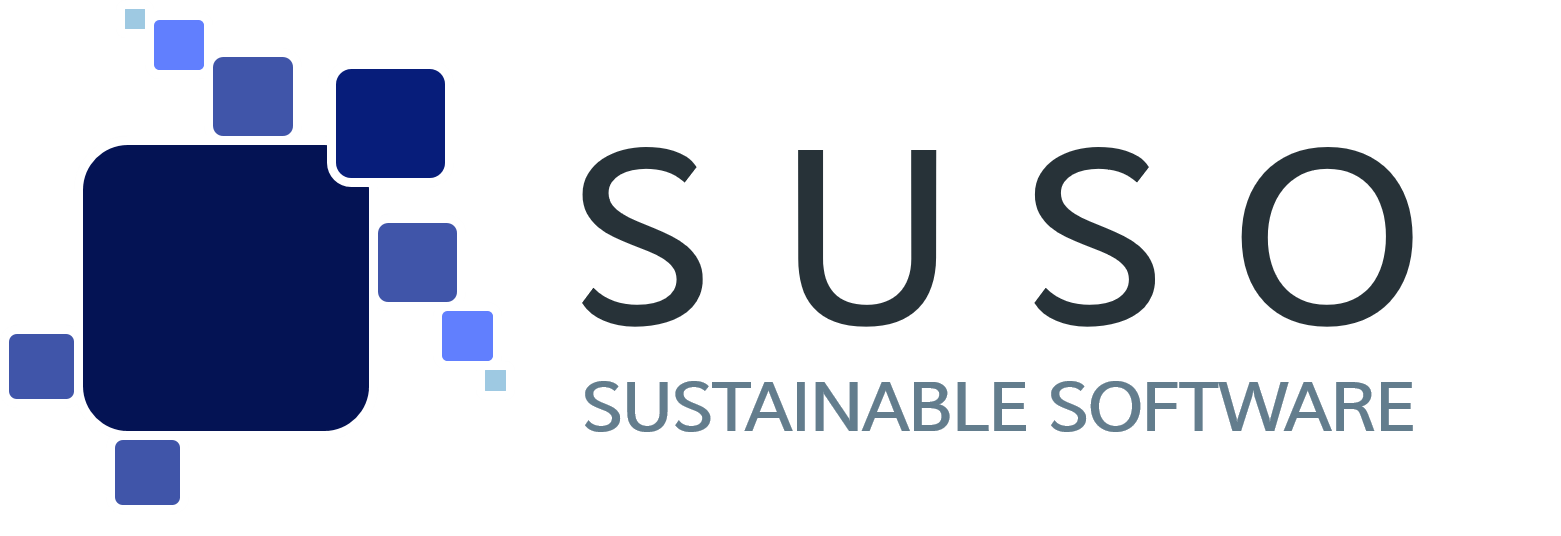10 famous software developers who have contributed to sustainability
In the IT industry, software developers are also looking for ways to make their work more socially responsible, environmentally friendly, and economically fair and equitable. In order to contribute to the well-being of all. Here, many software developers around the world have helped change the way we develop software and use technology. We will introduce you to 10 software developers who have made significant contributions to sustainability. Note, however, that this list is not a ranking, but rather for inspiration. Each of these individuals has made a valuable contribution in their own way. And can serve as a role model and reference point for anyone committed to sustainability in the IT industry.
Arjen Kamphuis: Cyber Security and environmental protection
To begin with, Arjen Kamphuis was a Dutch computer scientist and cybersecurity expert who disappeared under tragic circumstances in 2018. Kamphuis was known for his work in information security and his efforts to protect user privacy.
In addition to his work in IT security, Kamphuis was also an advocate for sustainability and environmental sustainability. He was an avid proponent of renewable energy and believed the IT industry could play an important role in reducing energy consumption and emissions.
Kamphuis also called for a greener approach to computing, recommending. For example, that data centers be built in colder regions to reduce cooling costs. In addition, he suggested that software developers and companies improve the energy efficiency of their software and hardware to reduce energy consumption.
Andrew “Bunnie” Huang: Cyber Security and environmental protection
Andrew “Bunnie” Huang is an American computer scientist and electrical engineer known for his work in the open source hardware community. Huang has made a name for himself by studying and improving the security and privacy aspects of hardware systems.
Huang has also made a significant contribution to sustainability by promoting the reuse and recycling of electronic equipment. In one of his projects, he designed a laptop that is almost completely recyclable and made from materials derived from devices that have already been recycled. The goal was to create a laptop that would not end up in a landfill at the end of its life and instead could be fully reused.
Huang has also worked on projects to reduce the energy consumption of electronic devices and extend the life of batteries. One example is the “Chumby One,” a small device that combines energy efficiency and sustainability. The Chumby One was designed so that it can be used as an alarm clock. Or as an entertainment system when needed and still consume very little energy.
David Heinemeier Hansson: Environmental protection
David Heinemeier Hansson is a Danish computer scientist, entrepreneur and race car driver. He is best known as the creator of the Ruby on Rails programming language and co-founder of Basecamp. As an entrepreneur, Heinemeier Hansson has not only built a successful company, but has also been a strong voice for sustainability and environmental protection in the technology industry.
Heinemeier Hansson has consistently spoken publicly on issues such as climate change and sustainability. He has called on the technology industry to take more responsibility and actively contribute to fighting climate change. At his company Basecamp, he has taken steps to reduce its carbon footprint. For example, by using renewable energy and optimizing business travel.
Heinemeier Hansson has also helped raise awareness of the environmental impact of the technology industry. He has regularly published articles and lectures on the subject. And he advocates for companies and software developers to incorporate more sustainable practices into their work.
Use our tools for sustainable software
Our three tools help you acquire the knowledge, skills, and financial resources you need to develop sustainable software products and services that meet social, environmental, and economic needs. By using these tools, you can position yourself as a leader in sustainable software development and help create a better future for all.
Chris Adams: Environmental protection
Chris Adams is a computer scientist and founder of SolarFire, a company specializing in solar software development. Adams is committed to sustainability and advocates for technology to be used as a tool to combat climate change.
Adams believes software can play an important role in the transition to renewable energy. Therefore, he aims to promote the use of solar software in the industry. His company, SolarFire, develops software that optimizes solar plant operations and maximizes efficiency to increase electricity generation and reduce carbon footprints.
Adams has also launched the Solargraph project, which is creating a comprehensive, global database of solar installations and their performance. This data will be used to further advance solar software development and accelerate the expansion of renewable energy worldwide.
Alex Steffen: Environmental protection
Alex Steffen is a U.S. author and futurist specializing in sustainability and future-oriented planning. Steffen has published numerous books and articles that address the challenges of climate change and environmental degradation. Here, he identifies solutions for how we can live more sustainably as a society.
As a computer scientist, Steffen has recognized that technology can play an important role in combating climate change. He believes that we must use innovative technologies to enable more sustainable lifestyles and reduce environmental impact. In his writings, he urges the technology industry to use its talents and resources to actively help protect the environment.
Additionally, Steffen created The Heroic Future project, which outlines a vision for a sustainable future. The project shows how technology and innovation can be used to create a world in which humanity’s needs are in harmony with the planet’s resources.
Linus Torvalds: Open Source
Linus Torvalds is a Finnish-American computer scientist and developer responsible for inventing the Linux kernel. Linux is an open source operating system that is used on numerous devices and platforms. It is known for its stability, scalability and security.
Torvalds has championed sustainability by promoting the idea of collaboration and open sharing that is rooted in the open source community. Furthermore, through the creation of Linux, he has helped reduce the cost of operating system development. Moreover, optimize the use of resources by allowing Linux to run on older and less powerful devices.
In addition, Torvalds has emphasized the need to tailor software to the needs of users in order to improve their quality of life. By promoting the concept of usability and simplicity in software development, he is helping to ensure that devices and applications are used longer and replaced less frequently.
Jutta Treviranus: Accessibility
Jutta Treviranus is a Canadian computer scientist and professor at the University of Toronto. She is a leader in the development of accessibility standards and technologies and has worked to create an inclusive digital world.
Treviranus has championed sustainability by pointing out that accessibility and sustainability are closely linked. She believes that a digital world that is accessible and usable by all can help conserve resources and energy by addressing the needs of all users.
As founding director of the Inclusive Design Research Centre, Treviranus has led numerous projects aimed at improving accessibility and inclusion in the digital world. She has also been instrumental in developing international accessibility standards and advocating for the creation of technologies that are accessible to all users.
Jeremy Keith: Inclusive Design and environmental protection
Jeremy Keith is a British web developer, author, and speaker who advocates for ethical and sustainable web design. He is the co-founder of Clearleft, a design and technology agency. Keith has also written numerous books and articles on topics such as web standards, design, and sustainability.
Keith has championed sustainability by emphasizing that the design of websites and applications has a responsibility to the environment and the user. He urges the pursuit of resource-efficient and user-centered design that is responsive to user needs and minimizes environmental impact.
As a proponent of web standards and semantic design, Keith has helped ensure that websites and applications are user-friendly and accessible on all devices and platforms. He has also advocated the use of sustainable technologies. Such as Progressive Web Apps and static websites, which require fewer resources and load faster than traditional dynamic websites.
Donella Meadows: Environmental protection
Donella Meadows was a U.S. systems analyst and environmental scientist who advocated sustainability and environmental protection. She is best known for her book, “The Limits to Growth”, which she co-wrote with the Club of Rome. Meadows is one of the most important works in the field of environmental science.
Meadows championed sustainability by pointing out that the earth’s resources are limited. And that it is important to promote sustainable practices to protect the environment and preserve the quality of life for future generations. She believed that environmentally conscious and sustainable living is the key to a better future.
As co-founder of the international network “The Donella Meadows Institute”, Meadows advocated that systems analysis and modeling can help solve complex environmental and sustainability problems. She also emphasized that a change in the way society thinks and acts is necessary to achieve a sustainable future.
Tim Berners-Lee: Democracy
Last but not least, Tim Berners-Lee is a British computer scientist and the inventor of the World Wide Web. He has championed sustainability by emphasizing that the Web can be a tool to bring about positive change in the world.
Berners-Lee believed that the Web can be a platform for collaboration and sharing knowledge and ideas to create a sustainable future. He also emphasized that open standards and free software are essential for a democratic and sustainable Web.
A proponent of net neutrality and privacy, Berners-Lee has worked to ensure that the Web remains a place where people can freely express their opinions. And share information without fear of surveillance or censorship. He has also supported the idea of a decentralized web, where no centralized databases or servers are needed.
Fazit
Whether it’s protecting privacy, promoting open source software, designing sustainable systems, or using the Internet as a tool to promote social change, they’ve all helped make software development look different today than it did just a few years ago. It is important to emphasize that this list is not intended as a ranking, but to serve as inspiration. There are many other software developers who have also contributed to sustainability in software development that have not been mentioned here. We hope that this article will help raise awareness of the issue of sustainable software development. Each of us can make a contribution.





